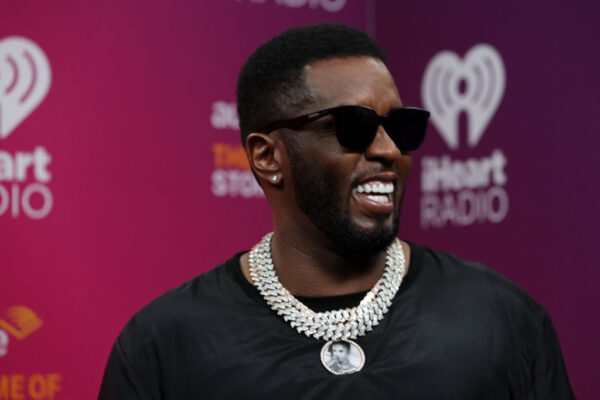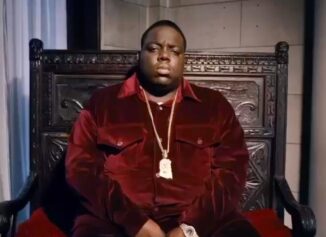Hip-hop mogul Sean “P. Diddy” Combs has reassigned publishing rights to former Bad Boy label artists and songwriters that were the foundation of his multi-billion-dollar empire. But not all the artists are happy, with some saying there is no value in those rights in the current market.

One of those artists is Former Bad Boy artist Mark Curry. He took to his social media and said, “Whoopdeedoo, what is it worth? What was it worth 10 years ago or 20 years ago?”
Did Diddy Forgo Potentially Hundreds of Millions of Dollars?
Instead of selling rights to major publishing houses for potentially hundreds of millions of dollars, which is a common practice in the industry, Diddy has chosen to relinquish his ownership stake in songs produced by renowned artists such as The Notorious B.I.G., Faith Evans, Ma$e and Danity Kane.
“Combs hopes that his unprecedented move will inspire the music industry to follow suit as he continues to be disruptive and change the status quo. He wants to see more creators flourish and profit as much as possible from their work, hopefully sparking a new way the biz compensates future ones,” reported Revolt.tv, the cable company and media outlet co-founded by Diddy in 2013. “Combs sees this as a part of a larger conversation to further economic empowerment for Black artists and culture.”
This unprecedented move seems to put the artists first, even if it means forgoing substantial future royalty earnings from a catalog that was basically the soundtrack of a generation.
Rapper Ma$e has been one of the loudest about wanting to be the sole owner of his musical rights, going to war with Diddy on social media and in the press for years. Recently, his “It Is What It Is” co-host Cam’ron shared that the Harlem rapper “just finished the paperwork” with Combs and now owns his contribution on hits to include “What You Want,” “Feel So Good,” “Lookin’ At Me,” and the multiple works on which he ghost wrote.
He seems pleased with the move.
Mark Curry Put Diddy on Blast
On the other hand, Curry, best known for his verses on compilation jams “Bad Boy for Life” and the “Let’s Get It” remix, finds that the publishing is not worth anything because Combs is like a “spider that went in and sucked all the insides out of it. That’s disrespectful.”
He said he doesn’t want the publishing, but would prefer getting the money.
“It has no value… I want him to give me a million cash and then I can plan the rest of my life out well,” he said.
Curry, who signed in 1997 and left in 2005 without a solo project, also believes that the act of returning the music rights and donating $1 million to Jackson State, was not done from a space of benevolence but rather a ploy to “stay relevant” because his other business dealings are not doing well.
Despite Curry’s assessment, there is a significant value to many of the catalogs under the Bad Boy umbrella. The hits for that boutique label go back to 1993 when Combs did a joint venture with Arista Records and was responsible for hit songs like “Flava In Ya Ear” by Craig Mack or “Juicy” for the Notorious B.I.G.
Also signed to Bad Boy and most likely included in this reassignment are artists such as The Lox, 112, Total, Carl Thomas, Mario Winans, the Estate of Black Rob, now-Belizean politician Shyne, French Montana, King Los, Janelle Monáe, 8Ball & MJG, Da Band and more.
Many of the Bad Boy songs are still in rotation on radio, clubs, sporting events, and streamed and synced in commercials, movies, and television shows — and continuing to make money.
What does Sync Mean?
According to EasySong.com, a music synchronization license is a contract between a music user and the copyright owner of a composition (song). It grants permission to use the song in video formats such as YouTube, DVDs and Blu-ray discs. This permission is also referred to as synchronization rights or sync rights.
An example is the Notorious B.I.G.’s “Hypnotize,” which has been featured in movies such as “Ocean 8” (2016), “Central Intelligence” (2016), “Spider-Man: Into the Spider-Verse” (2018), and “Easter Sunday” (2022). Sounds from the track also appear on hit television series “Euphoria,” “Love Island” and “Fresh Off the Boat.”
The value to each artist will vary, depending on who made hits.





I think what has done is what should be standard business in the music and literary business. After the companies recoup money spent on projects the artists should get the publishing back. The artist and record companies via contract would have it written out that the company has the rights to distribute music for whatever amount of years. I don’t feel the companies should be making more money than the artists even after the companies recouped their monies. I see it as bad business.
Hopefully his move will set the tone for the future of how business is done in that industry. I believe the same principle can be applied in the literary industry. Like Mr. Combs mentioned it has the power to effect Black economics and generational wealth in a big way.
I believe that if he structures his recording contracts better new artists will flock to Bad Boy and the company will see the 90’s all over again.